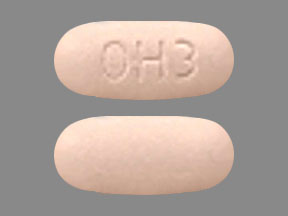
Benicar Hct Coupons & Savings Card – Discount Prices from $10.74
Brand for: Olmesartan-hydrochlorothiazide
My prescription
Edit
40-25MG, Olmesartan-hydrochlorothiazide (30 Tablets)
Select pharmacy

CVS
$20.55
COUPON PRICE
Walmart
$10.74
COUPON PRICE
Walgreens
$14.94
COUPON PRICE
Albertsons
$18.85
COUPON PRICEBenicar Hct savings card
Show this card to your pharmacist
Walmart
$10.74
BIN
ID
PCN
GRP
019876
LHF4B9483C
CHIPPO
LHX
Powered by
More prescriptions for hypertension
More prescriptions for hypertension
Benicar Hct (Olmesartan-hydrochlorothiazide) dosage forms
Dosage Quantity Price from Per unit 20-12.5MG 30 Tablets $8.79 $0.29 20-12.5MG 45 Tablets $11.93 $0.27 20-12.5MG 60 Tablets $15.08 $0.25 20-12.5MG 90 Tablets $27.86 $0.31 20-12.5MG 180 Tablets $36.81 $0.20 40-25MG 30 Tablets $10.74 $0.36 40-25MG 15 Tablets $6.62 $0.44 40-25MG 45 Tablets $14.85 $0.33 40-25MG 60 Tablets $18.97 $0.32 40-25MG 90 Tablets $33.05 $0.37
| Dosage | Quantity | Price from | Per unit |
|---|---|---|---|
| 20-12.5MG | 30 Tablets | $8.79 | $0.29 |
| 20-12.5MG | 45 Tablets | $11.93 | $0.27 |
| 20-12.5MG | 60 Tablets | $15.08 | $0.25 |
| 20-12.5MG | 90 Tablets | $27.86 | $0.31 |
| 20-12.5MG | 180 Tablets | $36.81 | $0.20 |
| 40-25MG | 30 Tablets | $10.74 | $0.36 |
| 40-25MG | 15 Tablets | $6.62 | $0.44 |
| 40-25MG | 45 Tablets | $14.85 | $0.33 |
| 40-25MG | 60 Tablets | $18.97 | $0.32 |
| 40-25MG | 90 Tablets | $33.05 | $0.37 |
| 40-12.5MG | 10 Tablets | $5.04 | $0.50 |
| 40-12.5MG | 30 Tablets | $10.11 | $0.34 |
| 40-12.5MG | 45 Tablets | $13.92 | $0.31 |
| 40-12.5MG | 60 Tablets | $17.72 | $0.29 |
| 40-12.5MG | 90 Tablets | $31.83 | $0.35 |
What is Benicar HCT used for?
Benicar HCT is used to treat high blood pressure (hypertension). It combines two medications, olmesartan and hydrochlorothiazide, to help lower blood pressure and reduce the risk of complications such as stroke and heart attack.
What is the difference between Benicar and Benicar HCT?
Benicar contains the active ingredient olmesartan, which is an angiotensin II receptor blocker (ARB) used to treat high blood pressure. Benicar HCT, on the other hand, is a combination medication that includes both olmesartan and hydrochlorothiazide, a diuretic. The addition of hydrochlorothiazide helps to further lower blood pressure by reducing fluid retention.
What foods should you avoid while taking olmesartan hydrochlorothiazide?
While taking olmesartan hydrochlorothiazide, it is advisable to avoid foods high in potassium, such as bananas, oranges, and leafy greens, as the medication can increase potassium levels in the blood. Additionally, it is recommended to limit salt intake and avoid alcohol, as these can interfere with the medication's effectiveness and increase the risk of side effects. Always consult with a healthcare provider for personalized dietary advice.
